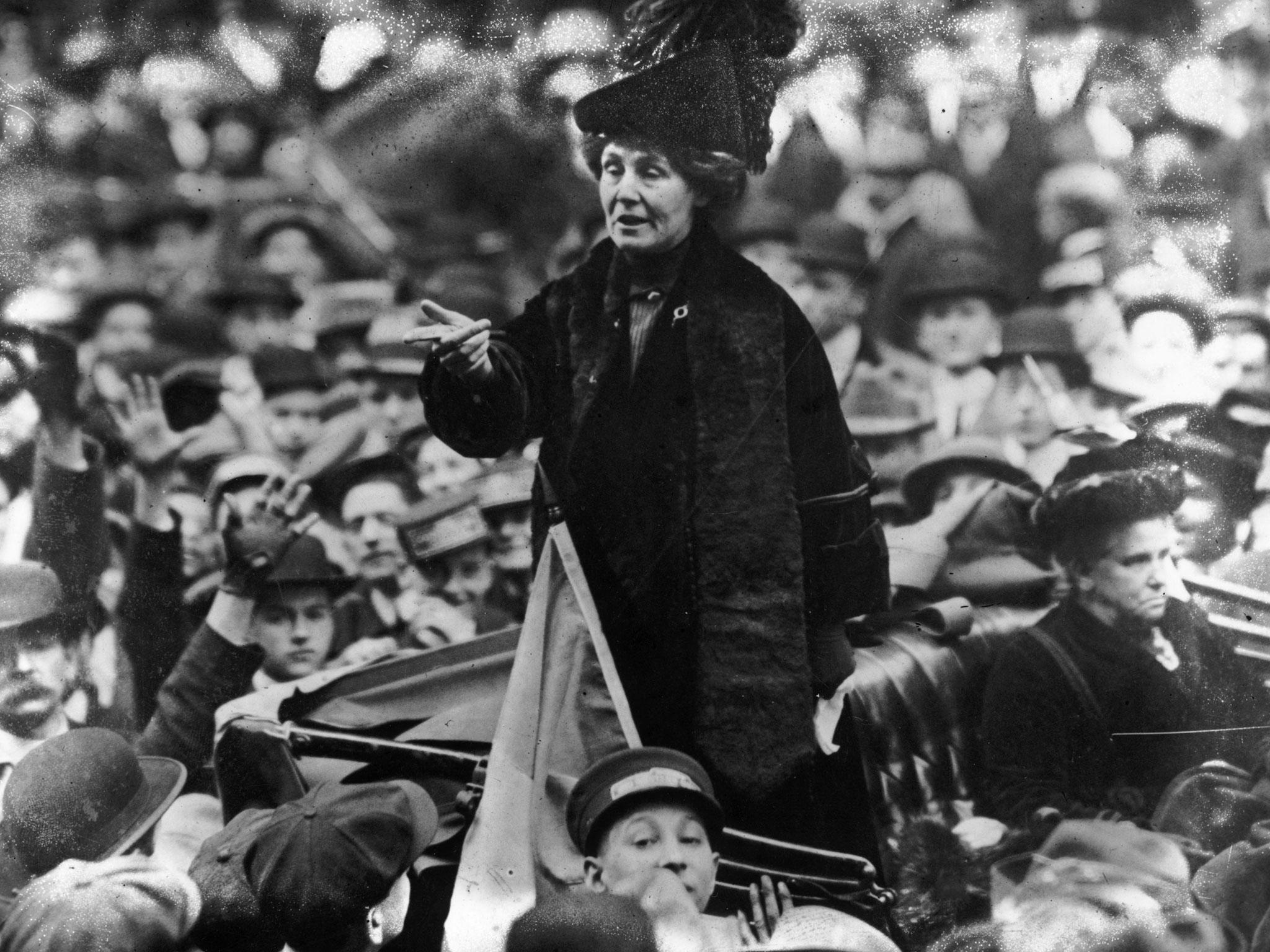Paperback reviews: My Own Story, The Visitors, Summer in the Shadow of Byron, Fear of Flying, Dissident Gardens
Women owe Emmeline Pankhurst (above) a huge debt

My Own Story by Emmeline Pankhurst (Vintage, £7.99)
If 2014 was the year that marked commemoration of the outbreak of the First World War, this year looks set to be the year of the suffragette, with books, and a film scheduled for release in which Emmeline Pankhurst, played by Meryl Streep, will naturally have a role.
I say “naturally” because if the suffragette movement is identified with any one individual, it’s almost certainly Pankhurst, who embraced militancy, and repeatedly justified the violent behaviour of her followers. A genius at publicity, she knew exactly how to manipulate the media.
This re-publication of her 1914 work, written on the eve of war when the women decided to cease activity temporarily (would they have done so had they known the war would last four years?), still has power to move and shock. It’s easy to forget that suffragettes took up behaviour that would nowadays have them labelled as terrorists. They famously smashed their prison cell windows and those of political leaders, they hurled bricks, and were arrested and imprisoned for attacking policemen.
But Pankhurst’s impassioned cry here also illustrates the violence inflicted on the women themselves, not least by police and prison staff who force-fed offenders who were on hunger strike. One terrifying incident sees Pankhurst surrounded by a silent group of men which hints at the possibility of sexual assault, before police appear. As it is, she needs weeks to recover from the fright.
She also reiterates what inspired her in the first place: the sorry lot of poverty-stricken women, without power or rights of any kind. There’s a human side to this political woman, displayed in her book, which we need to see. Pankhurst wasn’t perfect; she was autocratic and made enemies easily. But women owe her a huge debt.
****
The Visitors by Sally Beauman (Abacus, £7.99)
Beauman’s tale is a double narrative told by younger Lucy in the early 1920s, when she was in Egypt with a chaperone and befriended an American girl called Frances, and much older Lucy, looking back over a shocking event that took place, and in which she and Frances are implicated. There’s much about this story to appeal to a middle-market audience: the settings are glamorous and mysterious, the woman who dies in strange, unexplained circumstances, is morally dubious and very beautiful, and there are real-life characters such as Howard Carter and Lord Carnarvon, searching for Tutankhamun’s tomb, to add extra spice. Beauman has done a tremendous amount of research, as her bibliography testifies, but sometimes this history gets in the way: the story builds slowly, and there is a great deal of explaining done. This makes for a much less intriguing novel than it should be, and the tensions in the friendship between Lucy and Frances take a very long time to get going.
***
Summer in the Shadow of Byron by Andrew McConnell Stott (Canongate, £14.99)
Stott’s focus is very much the two people who stood in Byron’s shadow: his doctor, John Polidori, who accompanied him to Lake Geneva that summer when they both, along with the Shelleys and Claire Clairmont, tasked themselves with writing ghost stories, and Clairmont herself. Lord Byron was indeed “dangerous to know”, as this group history proves: Polidori, after writing a vampire novel, considered by the world to be written by Byron, killed himself. Clairmont bore Byron’s illegitimate child, a girl who would die aged five. Much of this material is familiar, but Stott teases out the worrying knot of fame and those caught up in it, and the damage done to those less well-equipped to deal with it.
****
Fear of Flying by Erica Jong (Vintage, £8.99)
Jong’s 1973 novel was a huge part of second-wave feminism that burst through in the 1960s and 1970s. For Jong, that liberation was very much a sexual one, and her novel focuses on the sexual adventures of unhappily married Isadora Wing. I say “sexual adventures” but today’s readers will find it all very tame indeed. Isadora, a psychiatrist, is married to Bennett, also in the profession. At a conference in Vienna, she meets Adrian Goodlove, an English psychiatrist, and they begin an affair. Isadora recounts frankly past relationships, what wasn’t working in her marriage, and what she finds satisfying about Adrian. Less shocking now in its central message, it’s really Jong’s freewheeling prose style that will capture readers.
****
Dissident Gardens by Jonathan Lethem (Vintage, £8.99)
Lethem fixes a muscular eye on a little-reported aspect of 20th-century American culture: the far less sexy subject of left-wing politics, and specifically Communist activity in the early and middle parts of the century. Rose is a relic of that era; Miriam is her daughter, who embraces 1960s hippie-dom when she marries an American-Irish protest singer. But this isn’t really a woman’s story. Instead, it’s more of a punchy historical novel, a relentlessly confrontational tale more associated with lead male characters. Lethem hasn’t made a mistake here, it’s more that he has reflected the women’s voices through their circumstances, and given them a masculine flavour.
****
Join our commenting forum
Join thought-provoking conversations, follow other Independent readers and see their replies
Comments